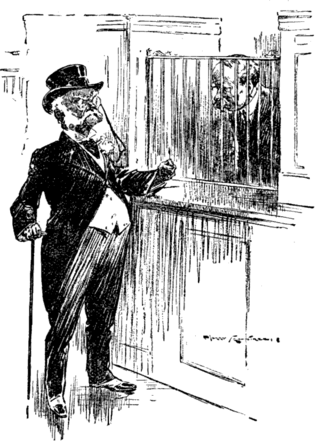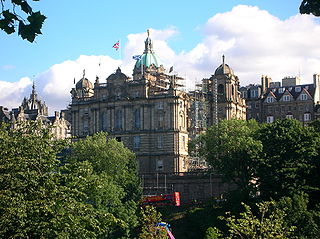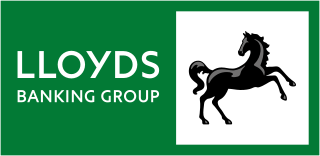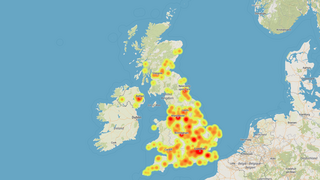
Identity theft, identity piracy or identity infringement occurs when someone uses another's personal identifying information, like their name, identifying number, or credit card number, without their permission, to commit fraud or other crimes. The term identity theft was coined in 1964. Since that time, the definition of identity theft has been legally defined throughout both the U.K. and the U.S. as the theft of personally identifiable information. Identity theft deliberately uses someone else's identity as a method to gain financial advantages or obtain credit and other benefits. The person whose identity has been stolen may suffer adverse consequences, especially if they are falsely held responsible for the perpetrator's actions. Personally identifiable information generally includes a person's name, date of birth, social security number, driver's license number, bank account or credit card numbers, PINs, electronic signatures, fingerprints, passwords, or any other information that can be used to access a person's financial resources.

Alistair Maclean Darling, Baron Darling of Roulanish, was a British politician who served as Chancellor of the Exchequer under prime minister Gordon Brown from 2007 to 2010. A member of the Labour Party, he was a member of Parliament (MP) from 1987 to 2015, representing Edinburgh Central and Edinburgh South West.

His Majesty's Revenue and Customs is a non-ministerial department of the UK Government responsible for the collection of taxes, the payment of some forms of state support, the administration of other regulatory regimes including the national minimum wage and the issuance of national insurance numbers. HMRC was formed by the merger of the Inland Revenue and HM Customs and Excise, which took effect on 18 April 2005. The department's logo is the Tudor Crown enclosed within a circle.
Benefit fraud is a form of welfare fraud as found within the system of government benefits paid to individuals by the welfare state in the United Kingdom.
A direct debit or direct withdrawal is a financial transaction in which one organisation withdraws funds from a payer's bank account. Formally, the organisation that calls for the funds instructs their bank to collect an amount directly from another's bank account designated by the payer and pay those funds into a bank account designated by the payee. Before the payer's banker will allow the transaction to take place, the payer must have advised the bank that they have authorized the payee to directly draw the funds. It is also called pre-authorized debit (PAD) or pre-authorized payment (PAP). After the authorities are set up, the direct debit transactions are usually processed electronically.

An overdraft occurs when something is withdrawn in excess of what is in a current account. For financial systems, this can be funds in a bank account. In these situations the account is said to be "overdrawn". In the economic system, if there is a prior agreement with the account provider for an overdraft, and the amount overdrawn is within the authorized overdraft limit, then interest is normally charged at the agreed rate. If the negative balance exceeds the agreed terms, then additional fees may be charged and higher interest rates may apply.

Gordon Brown's tenure as Prime Minister of the United Kingdom began on 27 June 2007 when he accepted an invitation of Queen Elizabeth II to form a government, succeeding Tony Blair, and ended on 11 May 2010 upon his resignation. As prime minister, Brown also served simultaneously as First Lord of the Treasury, Minister for the Civil Service, and Leader of the Labour Party. He and Blair both extensively used the New Labour branding while in office, though Brown's style of government differed from that of his predecessor. Brown rescinded some of the policies which had been introduced or were planned by Blair's administrations. He remained committed to close ties with the United States and to the war in Iraq, although he established an inquiry into the reasons for Britain's participation in the conflict. He proposed a "government of all the talents" which would involve co-opting leading personalities from industry and professional occupations into government positions. Brown also appointed Jacqui Smith as the UK's first female home secretary, while Brown's former position as Chancellor of the Exchequer was taken over by Alistair Darling.

Paul Richard Charles Gray, is a British former civil servant who was chairman of HM Revenue & Customs until he resigned on 20 November 2007.

Credit card fraud is an inclusive term for fraud committed using a payment card, such as a credit card or debit card. The purpose may be to obtain goods or services or to make payment to another account, which is controlled by a criminal. The Payment Card Industry Data Security Standard is the data security standard created to help financial institutions process card payments securely and reduce card fraud.

A credit card is a payment card, usually issued by a bank, allowing its users to purchase goods or services, or withdraw cash, on credit. Using the card thus accrues debt that has to be repaid later. Credit cards are one of the most widely used forms of payment across the world.

HBOS plc is a banking and insurance company in the United Kingdom, a wholly owned subsidiary of the Lloyds Banking Group, having been taken over in January 2009. It was the holding company for Bank of Scotland plc, which operated the Bank of Scotland and Halifax brands in the UK, as well as HBOS Australia and HBOS Insurance & Investment Group Limited, the group's insurance division.
In the period September 2007 to December 2009, during the Global Financial Crisis, the UK government intervened financially to support the UK banking sector, and four UK banks in particular.

In 2008 the Northern Rock bank was nationalised by the British government, due to financial problems caused by the subprime mortgage crisis. In 2010 the bank was split into two parts to aid the eventual sale of the bank back to the private sector.

Lloyds Banking Group plc is a British financial institution formed through the acquisition of HBOS by Lloyds TSB in 2009. It is one of the UK's largest financial services organisations, with 30 million customers and 65,000 employees. Lloyds Bank was founded in 1765 but the wider Group's heritage extends over 320 years, dating back to the founding of the Bank of Scotland by the Parliament of Scotland in 1695.

UK Uncut was a network of United Kingdom-based protest groups established in October 2010 to protest against cuts to public services and tax avoidance in the UK. Various sources have described the group as left-wing in its political orientation.

In the United Kingdom, the value added tax (VAT) was introduced in 1973, replacing Purchase Tax, and is the third-largest source of government revenue, after income tax and National Insurance. It is administered and collected by HM Revenue and Customs, primarily through the Value Added Tax Act 1994.
JPMorgan Chase is an American multinational banking corporation with a large presence in the United Kingdom. The corporation's European subsidiaries J.P. Morgan Europe Limited, J.P. Morgan International Bank Limited and J.P. Morgan Securities plc are headquartered in London.

Barclays plc is a British multinational universal bank, headquartered in London, England. Barclays operates as two divisions, Barclays UK and Barclays International, supported by a service company, Barclays Execution Services.
Revolut Group Holdings Ltd, doing business as Revolut, is a British multinational neobank and fintech company that offers banking services for individuals and businesses. The company was founded in July 2015 by British-Russian businessman Nikolay Storonsky and British-Ukrainian software engineer Vlad Yatsenko and operates in 48+ countries. It is one of the most popular online banks in Europe.

COVID-19 scams are scams whose cover story primarily relies on the existence of the COVID-19 pandemic. They have been reported in multiple countries, primarily the United States, Canada and the United Kingdom.















